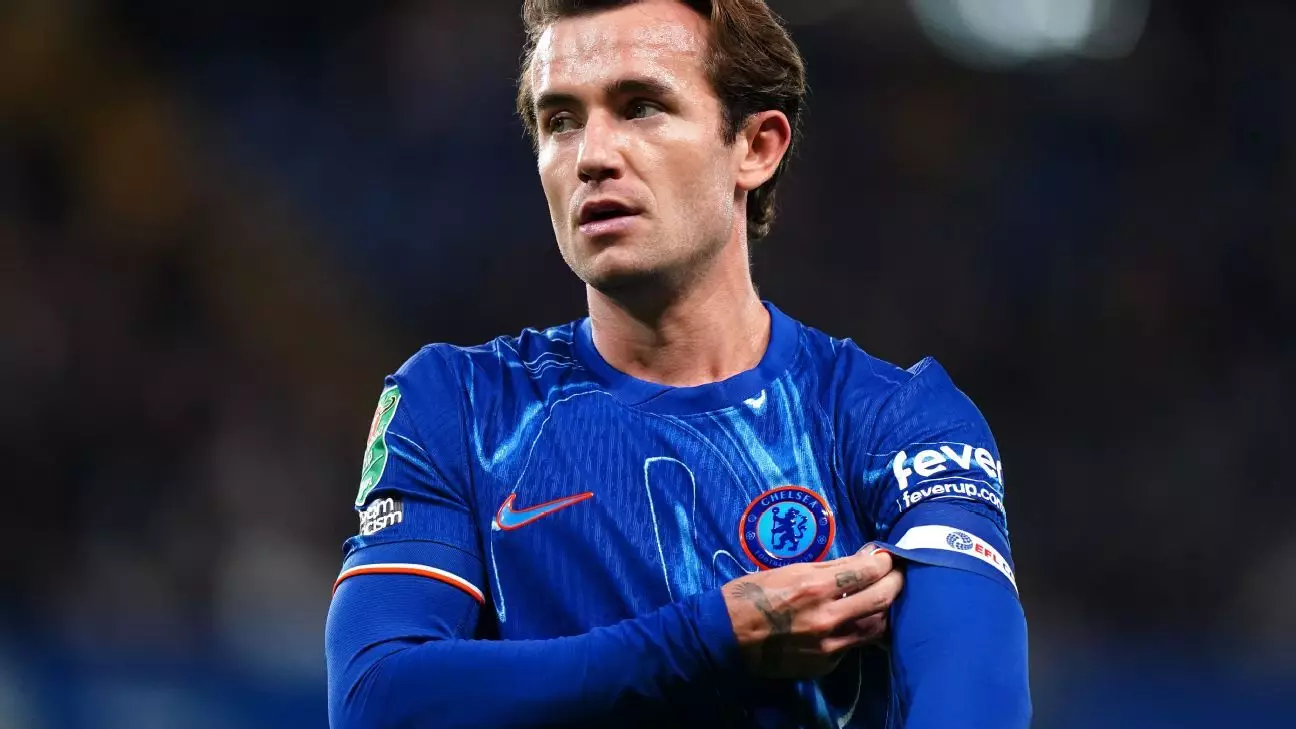In the competitive world of professional football, the tension between player aspirations and a coach’s tactical preferences often leads to difficult choices. This predicament has recently been exemplified in the case of Chelsea’s Ben Chilwell, whose situation under new coach Enzo Maresca has left many questioning the rationale behind team selections. Despite a solid track record, having made 70 Premier League appearances for Chelsea in his four years at the club, Chilwell’s current participation is shockingly limited, appearing only in a single Carabao Cup match this season. The disconnect between a player’s contributions and their acknowledgment on the pitch serves as a poignant reminder of the complexities intrinsic to sports management.
Maresca’s candid remarks about feeling “shame” regarding Chilwell’s treatment reveal a coach grappling with the realities of team dynamics. While he praises Chilwell’s professionalism and work ethic, the Argentine coach makes it clear that his tactical vision does not accommodate the 28-year-old full-back. According to Maresca, other players like Malo Gusto, Reece James, and Marc Cucurella suit his tactical style better due to their versatility on the field. This notion that a player’s best attributes might not align with a coach’s immediate strategy invites broader discussions about how player skills can be maximized or overlooked, depending on the broader team philosophy.
Maresca’s professed distaste for full-backs who primarily focus on up-and-down play highlights a broader evolution in football tactics. Today’s game often favors multifunctional players who can adapt their roles based on match situations. While this approach has its merits, it raises questions about traditional full-back roles and their relevance in contemporary football. Chilwell, recognized as a top full-back capable of attacking and defending, seems to find himself at odds with this tactical alteration. The dilemma he faces is not just personal; it reflects the shifting paradigms within coaching methodologies and player utilization.
Chilwell’s struggle is not isolated; it is part of a broader trend at Chelsea, where the team finds itself winless in five Premier League matches. Such a record amplifies the stakes, making the cohesion and morale of the squad ever more crucial. Reports linking young defender Renato Veiga with a move to Borussia Dortmund indicate that dissatisfaction is rampant among players regarding their playing time and positional responsibilities. Maresca’s insistence that he considers players like Veiga to be integral nonetheless shows a nuanced understanding of managing talent while navigating club ambitions and individual aspirations.
The case of Ben Chilwell casts a spotlight on the need for transparent communication between players and coaching staff. While managers have a vision for their teams, establishing a channel for players to express their feelings and desires may help alleviate discontent and confusion. As Chelsea prepares to face Bournemouth, it remains to be seen how the unfolding dynamics will impact not only individual players but the broader team performance. The intersection of strategic choices, player loyalty, and the drive for success creates a complex narrative that will inevitably shape Chelsea’s immediate future, as well as define the careers of its players.


Leave a Reply